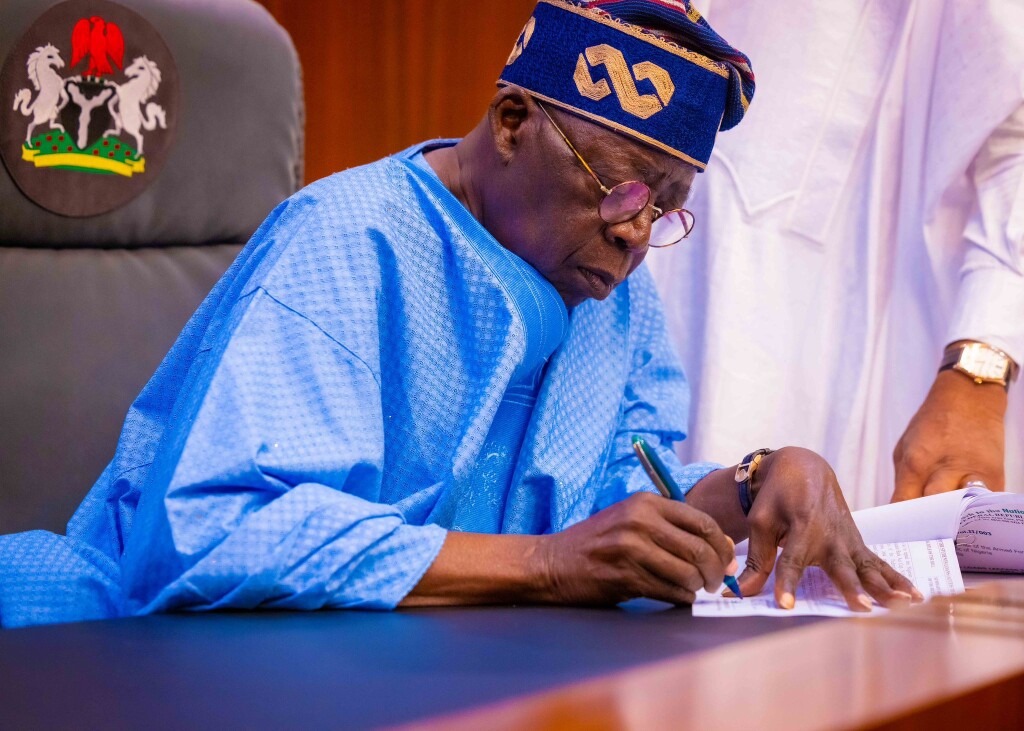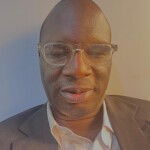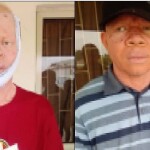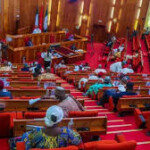It’s all kind of blah across Nigeria’s disability community as President Tinubu ratifies the AU Charter on PWDs' rights.
By Olusegun Elijah
With 43 articles, 82 sections, and 167 sub sections, the Protocol to the African Charter on Human and People’s Rights on the Rights of PWDs in Africa is not much different from Nigeria’s Discrimination Act. Both were adopted and passed respectively in 2018. Not much either in synopsis with even the Lagos State Special People’s Law, the second of the two most encompassing legislative pieces on disabilities in Nigeria. So President Bola Tinubu signed the ratification instrument of the charter last week.
Big deal!
The cold shoulder with which the disability community in Nigeria received the news betrayed the triteness of the corpuses, and their impotence.
All those from whom ER sought comments in the disability community, including lawyers, ignored the request. Some probably had never studied the charter to have known the goods it could deliver.
Since most of its provisions don’t promise to deliver over and above what Nigeria’s has, the charter got that short shrift. The indifference was no surprise. A minority that perpetually feels second-rate can feel no better.
But there are few of the Charter’s provisions that the Discrimination Act 2018 overlooks. Or didn’t envisage. Or neglects. Some include the private sector compliance. Others border on government responsibilities to organisations stepping into the gap. The broadest of all goes to the heart of disability policymaking. All these the framers embedded in articles 4, 13, and 14 of the charter.
For starters, sections 8 to 30 of the Act provide for participation of PWDs in all spheres of life in Nigeria. Likewise Section 38 which gives the National Commission for Persons With Disabilities (NCPWD) the responsibility to ensure PWDs participate in policymaking. That more or less means the more responsible the commission is, the greater the PWDs’ participation; and vice versa.
However, for five years, disability affairs have never been mainstreamed in Nigeria’s policymaking—and lawmaking, too. Experts readily cite the financial inclusion policy where issues of accessibility to PWDs had to be tucked in later, and are still being so. The Nigeria Economic Summit Group’s document on reproductive health policy for women with disabilities also revealed in its recommendations how people with no disabilities usually dominate policymaking relating to disabilities. The National Development Plan 2020-2050 equally hinted at this. Persons with disabilities have to complain of discrimination at the policy implementation level before some of their input, especially the bits coming from the elite among them, can get some consideration.
But Article 4 (b) of the Charter makes it straight to the point:
Mainstreaming disability in policies, legislation, development plans, programmes, activities, and all other spheres of life.
If followed, the section ensures no policy or legislation passes without the disability component of the subject matter. Either public or private.
For now the Act mainly applies to public institutions, programmes, and services in Nigeria. Only section 20, on accommodation and transportation, butts a little on private services. The entire Act lacks a direct reference to private schools, health providers, and others. Which is why most private hospitals, for instance, still carry spread-eagle or lift up wheelchairs users coming in. And there are many private schools that discriminate against children with cerebral palsy, the worst hit population of children with disabilities.
The charter, however, states in Article 4, subsection (g):
Refraining from engaging in any act or practice that is consistent with the present protocol and ensuring that public authorities, institutions and private entities act in conformity with the protocol.
Of interest is the charter’s recognition of institutions, private or public, inhabited or managed by PWDS. It states in Article 14 (2f):
Community living centres organized or established by persons with disabilities are supported to provide training, peer support, personal assistance, and other services to persons with disabilities
But this is still of no effect in Nigeria, despite the semblance of that article in the many provisions of the 2018 Act.
Much of the responsibility for enforcing the Act’s provisions rests on the NCPWD. Rather than recognize it as a right, the private entities (and even the public ones) comply with the Act out of sympathy for the PWDs. Most times the entities sail close to the wind, exploiting the lacuna in the Act. And they get away with it. This only reveals the strength of the commission in charge of implementation.
But the Act itself is supposed to have its force as an instrument. Why the blunt edge of the law? Defects. It simply can’t give what it lacks. In all its 10 parts and 58 sections, the Act never specifically addresses PWD’s access to justice. Sections 3 to 8 provide for accessibility to physical structures and accessibility aids in public buildings. The provisions stop short of that. Procedural accessibility, for instance, doesn’t feature anywhere. Sign language interpreters, braille format, and other special communication needs are only provided for—expressly—in institutions other than courtrooms. As in the Act’s Part V—Liberty, rights to Education, Health, and Queues, Accommodation and in Emergencies.
But the charter, in Article 13, sections 3 and 4, states:
All law enforcement and justice personnel shall be trained at all levels to effectively engage with and ensure the rights of persons with disabilities are recognized and implemented without discrimination.
State Parties shall ensure legal assistance including legal aid to persons with disabilities.
In Nigeria, the last resort a PWD has, in terms of legal aid, is the office of public defender (OPD). It’s state institution which is not purposed for legal defence of disabilities.
Lukman Salami, the chairman of the Nigeria Association of the Blind, Lagos State, once told ER there’s no reason for piling up law after law. The first one has to address what he called the Mischief Rule, for which it comes into force.
The African charter highlights specific areas where the Discrimination Act goes dark, no doubt; but its framers provided no reason why a member state’ domestic disability law needs an international version to deal with its discrimination and inequality. Many see lack of force as the natural culprit. That nearly makes both bodies of disability laws one of a kind.
The Act, in Section 2, subsections a, b, and 3, states:
2) A person who contravenes subsection (1) commits an offence and is liable on conviction to, if the person is—
a) A body corporate, a fine of N1,000,000 and
b) An individual, a fine of N100,000 or six months imprisonment or both
3) Notwithstanding the prosecution, conviction or otherwise of any person for any offence under this Act, the person against whom the crime or wrong is committed may maintain a civil action against the person committing the offence or causing the injury without prejudice to any conviction or acquittal.
For the past five years, these provisions have not been enforceable. The act provides a window of opportunity that closes next February. In ER previous interviews, a lawyer with disabilities said the disability community was only waiting for that time. It’s then they can play the law and see how enforceable it is.
In this, the AU charter is equally of little help. None of its articles prescribes a sanction. A whole lot is even still dangling. Section 2 of Article 34, on implementation, asks member states to set up a national independent body to monitor the charter’s implementation. Except the National Human Rights Commission, which cannot state categorically what it has done for the PWDs, Nigeria has none yet. And the chances are low it will set up another now. Although it’s on the disability commission’s governing council, the human rights commission doesn’t have the implementation responsibility resting squarely on it.
And for adjudication, the article’s sections 4 and 5 cede the responsibility to the African Court of Human and People’s Rights. No sanction stated.
If that suggests a lameness that will cripple the charter in the long run in Nigeria, how it kicks in, even after Tinubu’s ratification, makes things worse. According to Article 38, the protocol shall enter into force 30 days after the 15th state that ratifies it deposits the instrument of ratification with the chairperson of the AU Commission. And how long does that take? Perhaps as long as the spine of the document itself.
It’s not clear what Nigeria’s position is among those states that have ratified and submitted the instrument. As of 2021, only three—Mali, Burkina Faso, and Togo, out of the 15 members in ECOWAS alone—had ratified the instrument, since 2018.
In the meantime, the charter will have to go through the routine again in Nigeria. “No amount of signatories can make international treaties operational in Nigeria except they are domesticated through the National Assembly,” Salami said.
That process won’t start and end in record time, no matter how cooperative the lawmakers are. And there’s no justification for any hurry.
Salami argued it may not be exactly true that the provisions of the charter are not in our own domestic law.
“If those domestic laws are implemented, Nigeria won’t need to be signing these international laws,” the lawyer said.
The federal government that ratified the charter might have done so for window dressing. It was the only benefit that likely stood out after debating to sign or not to sign.
Ratifying it improves Nigeria’s human rights records, at least. The government knows the charter in itself lacks the hope and the force to offer Nigerians with disabilities anything fresh.







